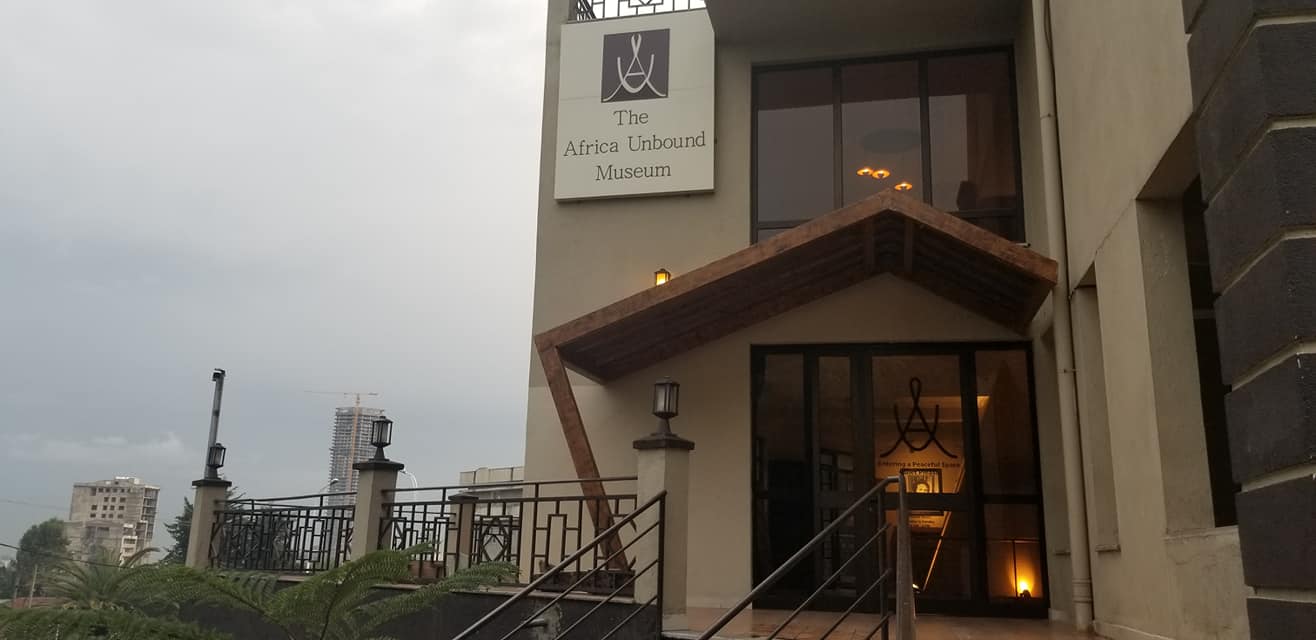By Byron Mutingwende in Addis Ababa, Ethiopia
One does not need to look beyond the Africa Unbound Museum located in the heart of Addis Ababa, Ethiopia where the history of the world and indeed that of the African continent is captured in a space that combines modernity with the past.
The rare opportunity extended to journalists attending a training on global trade and the World Export Development Forum from 16 to 22 November 2019 in in Ethiopia to sample this cultural heritage site by the founder of Africa Unbound Museum, Dr. Rahel Kassahun has opened the minds of scribes to appreciate their history and ethos that define who they are as a people.
Addressing journalists during the tour of the museum, Dr. Kassahun said modern-day living has created a critical vacuum that is leading to the gradual disintegration of the social fabric in Africa.
“Young people are raising themselves without the support and guidance of elders and caring communities. We have a generation of adults who are getting older without necessarily getting wiser. The wisdom embodied in older generations, which was transmitted through stories and proverbs, rituals and ceremonies, modelling “how to be”, etc. is gradually being eroded from our collective memory.
“Our aim is not necessarily to go back to the “good old days,” but to recognise the resilience, wisdom, courage, genius, and love of our ancestors that has made it possible for us to live the life we have now; to determine what about our traditions and heritage we need to keep alive; and to explore the realities that could be established if we combine and harmonize our ancient wisdom with the technology and knowledge that is available to us today,” Dr. Kassahun said.
Rather than a collection of objects and materials, the Africa Unbound Museum offers a compelling human story – snapshots of “becoming” of the human species, in particular people of African descent – by drawing from history, anthropology and philosophy complemented by graphics, photographs, paintings and the “vibe” that the museum established.
“This one-of-a-kind museum has also created a space where we, the global community, can project into the future and explore a world in which Africa and the rest of the world would be unbound. What are the qualities that we would have to develop individually and collectively? What kinds of policies would have to be implemented in governance, education, health care, environmental stewardship, etc.?
“On the Africa Unbound platform, both in the physical space as well as virtually, we will come together with people from all over the world to think together about what is important for our development at this time and explore the possibilities of how we can collaborate to take actions that are aligned with what we believe is important – the establishment of peace, prosperity and progressive change in our individual lives as well as globally.”
Richard J. Catherall commended the museum for creating more courageous conversations in a move that would attract the world to visit Ethiopia. He said: “For this reason…You’ve managed to create something that’s deeply immersive, quite magical, and beautifully simple and this is a unique experience.”
Roland Bankole Marke said the creation of the museum was a giant and conscious leap for folk with an African lineage to take their destiny into their own hands. He said he was so happy that the necessary renaissance had naturally ignited.
